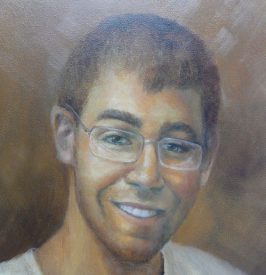Now available in Tennessee
Integrated addiction treatment from the privacy of your own home.
Telehealth care for recovering addicts to help them deal with the chronic nature of their issues, from both a medical and wholistic perspective.

Using Telemedicine to sustain recovery from opioid addiction
Lorem ipsum dolor sit amet, consectetur adipiscing elit. Ut elit tellus, luctus nec ullamcorper mattis, pulvinar dapibus leo.


Why An Aftercare Program
Once you complete rehab, it’s important to continue your recovery at home. However, this can be difficult without the proper support. Through an Aftercare Addiction Treatment Program, you can attend meetings and events to talk about your experiences with peers in recovery. REWRITE THIS
The game-changing benefits of TeleMedicine for addiction care in Tennessee
Privacy
All office visits are performed online, reducing the stigma associated with seeking help
Convenience
Barriers due to transportation, mobility, taking time off work, or childcare drop away as you visit your doctors and therapists online.
HIPPA Compliant
Our secure online platform insures your medical records and office visits are safe and private.
Medications / Prescriptions
Something about the ability to for patients to receive medications delivered to their local pharmacy.
Schedule A Consultation
How It Works
Since our care is delivered by telemedicine, we will communicate with you via iPhone, iPad, laptop or desk computer. No special equipment is needed.
This is a “come as you are” engagement. You only need one thing: motivation from within to move forward along a path of durable recovery.
Your needs frame our approach, with respect to the treatment team, duration and intensity of treatment. Recovery lasts a lifetime, and our support will be there as long as you choose.

Frequently asked questions
Lorem ipsum dolor sit amet, adhuc labores honestatis pro ne. Pri tantas epicuri inciderint te, nibh efficiendi disputationi ex pri. At facer theophrastus eum, has nulla bonorum vituperata at. Eos utroque consequuntur an, case solum his ei.
Lorem ipsum dolor sit amet, adhuc labores honestatis pro ne. Pri tantas epicuri inciderint te, nibh efficiendi disputationi ex pri. At facer theophrastus eum, has nulla bonorum vituperata at. Eos utroque consequuntur an, case solum his ei.
Lorem ipsum dolor sit amet, adhuc labores honestatis pro ne. Pri tantas epicuri inciderint te, nibh efficiendi disputationi ex pri. At facer theophrastus eum, has nulla bonorum vituperata at. Eos utroque consequuntur an, case solum his ei.
Lorem ipsum dolor sit amet, adhuc labores honestatis pro ne. Pri tantas epicuri inciderint te, nibh efficiendi disputationi ex pri. At facer theophrastus eum, has nulla bonorum vituperata at. Eos utroque consequuntur an, case solum his ei.
Lorem ipsum dolor sit amet, adhuc labores honestatis pro ne. Pri tantas epicuri inciderint te, nibh efficiendi disputationi ex pri. At facer theophrastus eum, has nulla bonorum vituperata at. Eos utroque consequuntur an, case solum his ei.
If you are in a medical emergency or crisis situation, dial 911 immediately for assistance.
Our Story

The late Alan Robert Stern (1985-2008) was the younger son of Kathleen and David Stern. Alan was a very sensitive person, attuned to the needs of those around him. His generosity, creativity and quirky sense of humor made him very popular. He loved visiting with friends, reading, writing, and cheering the NY Yankees.
Alan’s first experience with addictive drugs was in his junior year in high school. A change in his mood and motivation descended like a dark cloud. Despite a summer in a wildness camp and a year in a residential treatment program, he relapsed during his first year of college. Through determination and the support of friends, he regained sobriety, finished college in three years, and entered law school in Boston.
Alan seemed launched on a positive trajectory. He loved law school and enjoyed his new friends and colleagues. He was elected to the Banking and Finance Journal and was particularly interested in financial models of housing for the underserved.
Tragically, his life was progressively eroded by mysterious and debilitating abdominal pains. Extensive medical evaluations could not find an organic cause. His physicians prescribed anti-anxiety medications, none of which gave much relief. Nevertheless, he increased the doses and the variety of pills.
Finally, a few weeks into the fourth semester of law school, Alan turned to his parents to help with the problem that was overwhelming him. At that time, David was Dean of the School of Medicine and Vice President for Health Affairs at the University of Cincinnati. David and Kathleen tried to mobilize the resources of the medical community to meet Alan’s need for what seemed to be a complex issue of addiction, anxiety and abdominal pain. But it proved impossible to manage: there was no model of doctors working together to treat physical and mental health, along with substance abuse care. Like so many people, Alan felt that the doctors did not understand his problem and he did not share all his information or the depth of his despair. In fact, Alan had given up on our ability to help him.
When Alan passed on April 7, 2008, our family was changed forever. We had failed in caring for one of the two people we held most closely.
Kathleen and David Stern, in conjunction with the gifted addiction medicine specialists, Dr. Shawn Hamm and Dr. Drew Blackstock, have founded Integrated Addiction Care, Inc. to provide the kind of coordinated care that might have made a difference to Alan and so many others.
Our patients say




